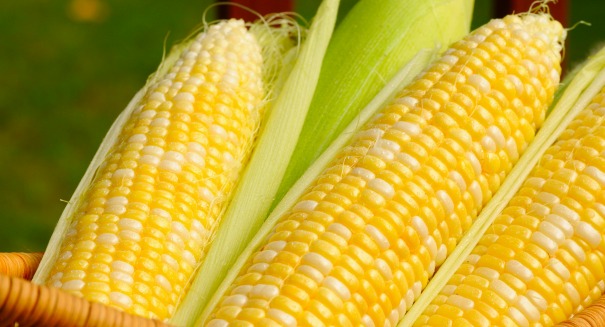-
Tips for becoming a good boxer - November 6, 2020
-
7 expert tips for making your hens night a memorable one - November 6, 2020
-
5 reasons to host your Christmas party on a cruise boat - November 6, 2020
-
What to do when you’re charged with a crime - November 6, 2020
-
Should you get one or multiple dogs? Here’s all you need to know - November 3, 2020
-
A Guide: How to Build Your Very Own Magic Mirror - February 14, 2019
-
Our Top Inspirational Baseball Stars - November 24, 2018
-
Five Tech Tools That Will Help You Turn Your Blog into a Business - November 24, 2018
-
How to Indulge on Vacation without Expanding Your Waist - November 9, 2018
-
5 Strategies for Businesses to Appeal to Today’s Increasingly Mobile-Crazed Customers - November 9, 2018
GMOs Are Safe, But Don’t Always Deliver On Promises, Top Scientists Say
Ruth MacDonald, chair of the Department of Food Science and Human Nutrition at Iowa State University, told NBC News that she hoped this new report could “reduce public concern about the safety of GE foods”.
Advertisement
The committee said it found no evidence that the crops had contributed to an increase in the incidence of cancer, obesity, diabetes, kidney disease, autism, celiac disease or food allergies. The research looked at corn and cotton that had been modified to be resistant to certain insects, and also at soybeans, corn and cotton, engineered to be resistant to herbicides.
For instance, the productivity of crops has been increasing for a century, and that didn’t change when GMOs came along. Trade disruptions-the result of varying regulations on the farming and import of GE crops-are likely to persist, the committee concluded.
“The committee carefully searched all available research studies for persuasive evidence of adverse health effects directly attributable to consumption of foods derived from GE crops but found none”, according to the release. Globally, 12 percent of all cropland is planted with genetically engineered plants. At a press conference, report committee member Michael Rodemeyer said the Food and Drug Administration (FDA) does not have the authority to mandate such labeling without the evidence of the health impacts from GM crops.
The report confirms that to date, GMO crops have not increased actual yields and should not be exclusively relied upon to meet our long-term food security needs. “But, it is in fact the herbicides that are built into the genetically modified foods”.
With the line between engineered and natural foods blurring thanks to newer techniques such as gene editing, the 408-page report said, regulators need to make their safety focus more on the end-product of the food that’s made rather than the nuts and bolts of how it’s made.
They also pointed out that the evolution of resistance in both insects and weeds caused by growing GE crops has become “a major agronomic problem”. Proponents argue genetic engineering increases productivity and will therefore help feed more hungry people, but the group said they “saw no evidence of that”.
Still, none of the studies done on animals and examining genetically engineered food on a chemical level found anything to suggest such foods would cause harm, according to the report.
The study also found no links “between any disease or chronic conditions and the consumption of GE foods”. “If I don’t want to have extra herbicide or if I’m not sure how it’s going to affect the environment, whatever the reason might be, we should label it so we can decide”, said Dr. Oz.
Advertisement
“Those issues clearly involved social and economic choices that go beyond scientific assessments of health or environmental safety; ultimately, they inherently involve value choices that science alone can not answer”, the study said.




























